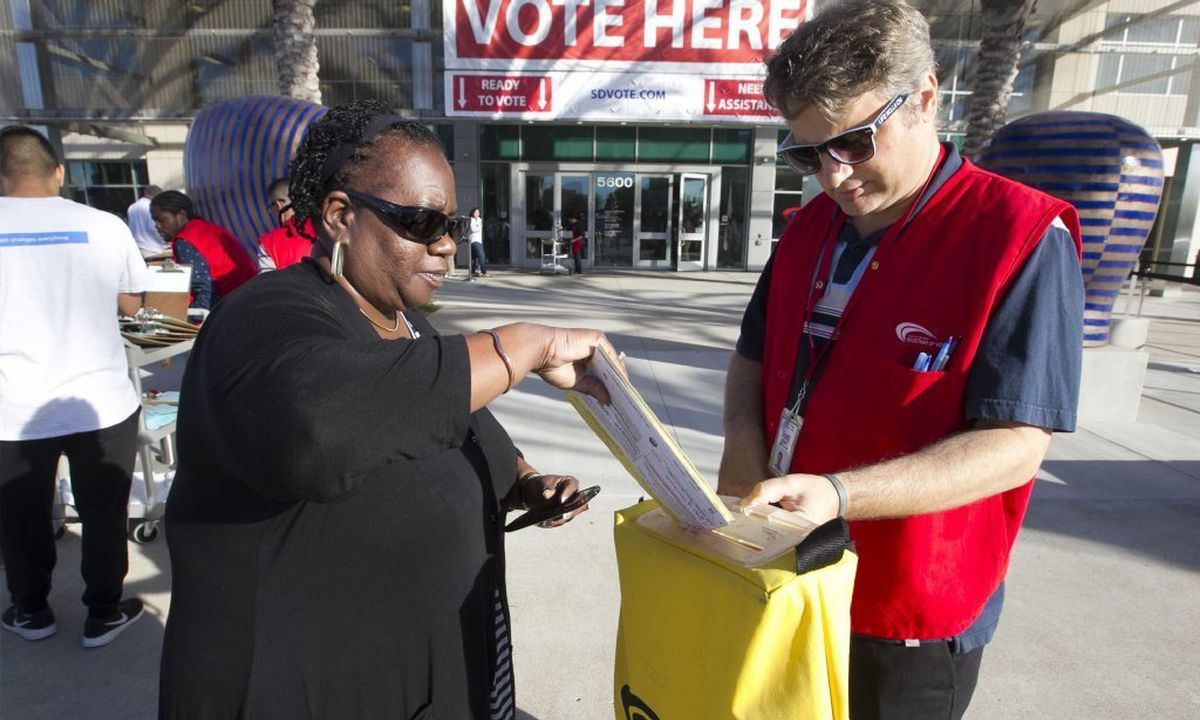Written by Nathaniel Mannor
For the everyday American, the Covid-19 pandemic was unlike anything they had ever seen, and with the election fast approaching, many were worried if they would be able to vote. But to Pelosi and the Democrats, it was an opportunity to federalize the 2020 presidential election by mandating mail-in voting and allowing for ballot harvesting. Pelosi’s move showed a purely partisan power grab of taking control of the Senate and Presidency while keeping the House. Now that the pandemic has ended, red states are fighting back.
This Thursday, the Supreme Court maintained two voting measures in Arizona that complied with Section 2 of the Voting Rights Act of 1965. The ruling comes from Brnovich v Democratic National Committee in a 6-3 split. The “out of precinct” policy states that ballots cast outside of a voter’s designated precinct are illegitimate. The “ballot collection” policy only permits family members, caregivers, mail carriers, and election officials to collect ballots.
The Democratic National Committee sued Arizona AG, Mark Brnovich, which claimed that these voting policies violated the Voting Rights Act and upheld racism, saying that these “restrictions” limited Black, Hispanic, and Native American voters. However, in his majority opinion, Justice Samuel Alito wrote that a disparate outcome does not amount to racism. He stated that the “mere fact there is some disparity in impact does not necessarily mean that a system is not equally open or that it does not give everyone an equal opportunity to vote.”
Justice Elana Kagan, meanwhile, compared these voting integrity measures to literacy tests that limited black people’s ability to vote in her dissent. This comment comes as a reminder of the Democrats’ obsession with comparing everything Republicans enact to the Jim Crow Era, a slur against both Republicans and those who suffered racial discrimination in the Jim Crow South.
In her dissent, she wrote, “So the court decides this Voting Rights Act case at a perilous moment for the nation’s commitment to equal citizenship. It decides this case in an era of voting-rights retrenchment – when too many states and localities are restricting access to voting in ways that will predictably deprive members of minority groups of equal access to the ballot box.”
This case for voting integrity drew the ire of many prominent Democrats, including the Houseplant-in-Chief. President Biden complained that “It is no longer just about a fight over who gets to vote and making it easier for eligible voters to vote. It is about who gets to count the vote and whether your vote counts at all.”
This latest Supreme Court case should draw support and celebration from both Democrats and Republicans to safeguard against election corruption, ensuring everyone’s vote is counted and everyone’s voice is heard. Yet, the Democrats prefer to cram down their election procedures on all 50 states with the failed “For the Corrupt Politicians Act” that attempted to federalize elections. Republicans understand that the Constitution states that the state governments create their election policies, while the federal government ensures that their election proceedings are Constitutional. Judging from their reaction, the Democrats can only rely on voter fraud to win seats rather than listen to the people’s will.




